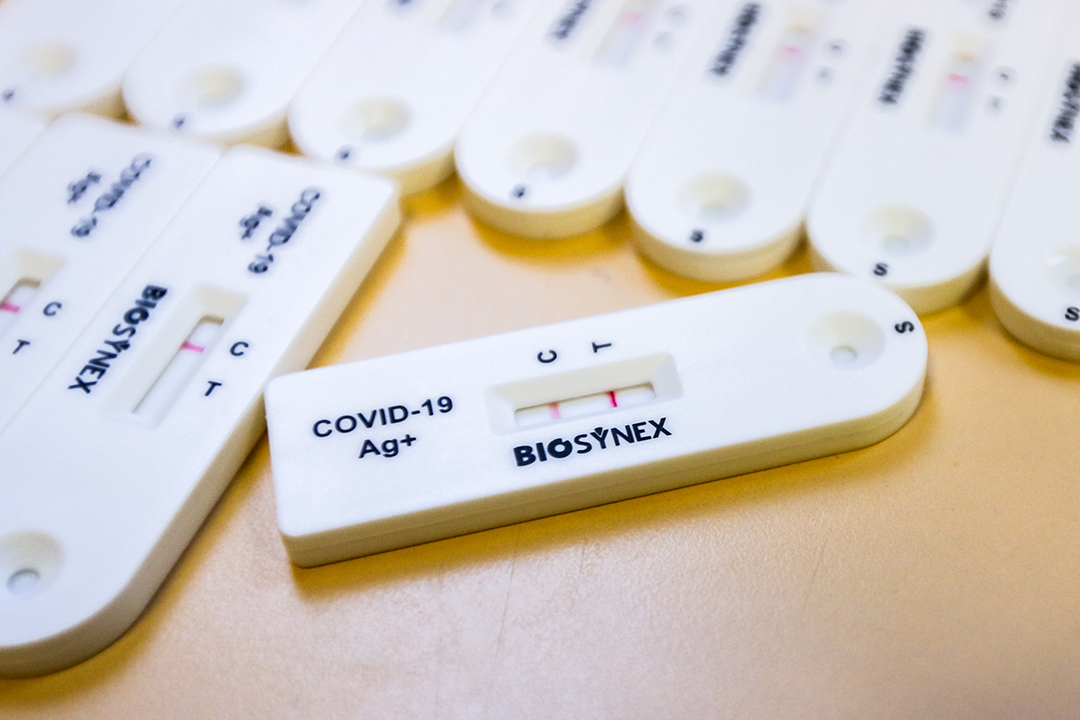Africa CDC Expands Campaign to Test for, Track COVID-19 Infections
ADF STAFF
Africa’s public health leaders are expanding their continentwide effort to test people for COVID-19 exposure to track the movement and evolution of the virus.
Dr. John Nkengasong, director of the Africa Centres for Disease Control and Prevention (Africa CDC), describes the campaign as the “2.0 version” of the agency’s Partnership to Accelerate Covid Testing (PACT), a program it launched in August 2020 as the pandemic swept the globe.
“Testing is the number one tool to fight this pandemic because without testing we will be fighting blindly,” Nkengasong said in a statement. “We also need to trace people who are infected, isolate them and treat them. By supporting African Union Member States to do more testing and tracing to identify and isolate infected persons, we will be able to control the virus and limit transmission.”
The expanded PACT program received a $12 million grant from the U.S.-based Rockefeller Foundation earlier this year.
By increasing testing, the Africa CDC hopes to expand its ability to detect COVID-19 outbreaks before they can reach epidemic proportions — to “squash” them before they grow, Nkengasong said.
To reach that goal, the Africa CDC is forming a network of community health workers across the continent to conduct testing and surveillance. It also is boosting the supply of easy-to-use rapid diagnostic tests to detect infections.
So far, the Africa CDC has deployed 18,000 community health workers to do the work.
Since the pandemic began, African countries have reported nearly 82.2 million tests. Five countries — Egypt, Ethiopia, Morocco, Nigeria and South Africa — account for half of those tests, with South Africa alone conducting 19.4 million tests.
Europe, by comparison, has conducted more than 1.3 billion tests since the pandemic began.
Expanding Africa’s testing means expanding its supply of tests. That’s already happening as labs in Morocco and Senegal create rapid diagnostic tests that can detect COVID-19 exposure in about 15 minutes from a nasal swab. Uganda has produced its own rapid test that uses blood samples to detect antibodies after a COVID-19 infection.
Antigen-based tests detect proteins associated with the virus. Antibody-based tests identify key components of the immune response triggered by an infection.
In addition, the Africa CDC recently certified experts from 16 countries to analyze the genetics of virus samples to identify specific strains.
Nkengasong suggested that the rapid diagnostic tests are simple enough for people to conduct on themselves using a nasal swab, then adding reagent to the test kit. Similar testing kits already are used to test for HIV exposure.
“Let’s learn the lesson from HIV/AIDS and put it [testing] in the hands of the community,” Nkengasong said.
Public health experts say increased testing is likely to increase reported caseloads. Africa has reported more than 8.6 million cases since early 2020 for a population of about 1.3 billion — a rate dramatically lower than other regions of the world. Researchers believe the continent’s low level of testing is one reason for that.
As Africa CDC begins its campaign to increase COVID-19 testing, its first challenge is reversing the current decline in testing, which coincided with the drop-off in cases as the third wave wound down.
“The key is we ought to push this to the community, almost like a self-test,” Nkengasong said. “We have trained so many people to do these tests, it should be easy.”


Comments are closed.